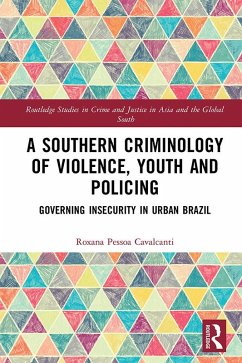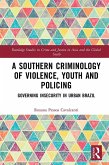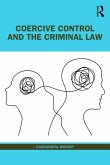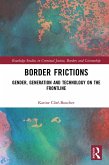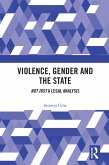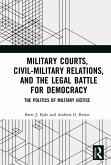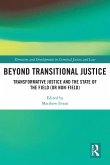Dieser Download kann aus rechtlichen Gründen nur mit Rechnungsadresse in A, B, BG, CY, CZ, D, DK, EW, E, FIN, F, GR, HR, H, IRL, I, LT, L, LR, M, NL, PL, P, R, S, SLO, SK ausgeliefert werden.
"Global police studies has been enriched by this careful study of Brazilian policing which provides a worrying indicator of the trend towards transnational insecurity. This book sheds much needed light onto the politics of policing in the Global South." James Sheptycki, McLaughlin College, York University, Toronto, Canada
"Cavalcanti's book is a splendid addition to a growing literature drawing attention to policing's often 'darker' southern aspects, where the legacies of post-colonialism or military dictatorship still cast their shadows. As the book compellingly demonstrates, in such contexts, policing often faces far greater threats and challenges, while police reform is itself so much harder to secure." Peter Squires, Emeritus Professor of Criminology and Public Policy, University of Brighton
"A first class empirical study of policing and securitisation policies in Brazil. Cavalcanti establishes the themes of 'southern' criminology and social science in the distinct trajectories of the global south from colonialism and military dictatorship to neoliberal security, by contrast to the 'northern' experience of neoliberalism as the weakening of the welfare state. She shows how the southern experience, reflected in Brazil, makes for an altogether harsher, more militarised and violent neoliberalism. High levels of violence and social polarisation combine with traditions of militarised policing to render popular northern crime control models such as situational crime prevention prone to exacerbate rather than ameliorate the marginalisation of poor communities. This book should also be read as a caution against complacent assumptions regarding possible futures for the global north." John Lea, Visiting Professor of Criminology, Goldsmiths, University of London.
"This book brilliantly presents an analysis of the rise of violence in Brazil in the last decades and empirically evaluates the changing discourses and practices in crime control policies in marginalized areas of large urban cities. A must read for criminologists worldwide interested in both the rise of crime and criminalization in the Southern Hemisphere." Mauricio Dieter, Professor of Criminology and Criminal Law, University of São Paulo

